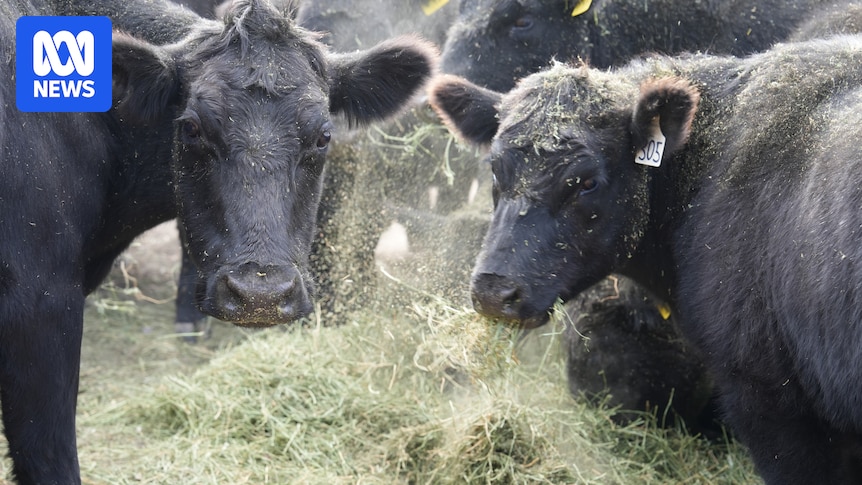Australia has lifted biosecurity restrictions on beef imports from the United States, one of the key grievances that led the Trump administration to impose tariffs on Australia.
The US has been able to export its beef to Australia since 2019, but certain products were banned over concerns related to mad cow disease, including beef sourced from Canada or Mexico and slaughtered in the US.
Because the American supply chain is so integrated, it meant an effective ban on all US beef to Australia since most of it could not be reliably traced.
The government says the US introduced more robust movement controls earlier this year, meaning cattle could be traced back through the supply chain to their original farms, allowing more certainty that products were not carrying disease or pests dangerous to Australia.
“The Albanese Labor government will never compromise on biosecurity,” Agriculture Minister Julie Collins said.
“The US Beef Imports Review has undergone a rigorous science and risk-based assessment over the past decade.
“The Department of Agriculture, Fisheries and Forestry is satisfied the strengthened control measures put in place by the US effectively manage biosecurity risks.”
Agriculture Minister Julie Collins says the decision was based on a scientific assessment. (ABC News: Brendan Esposito)
Ms Collins said the decision was the culmination of a ten-year process, and denied the timing of the decision was related to Mr Trump’s tariffs.
“This decision has been purely based on science,” she said.
Littleproud: confidence needed protections are not being ‘traded away’
Nationals Leader David Littleproud said the government must progress the decision calmly and “get this right”.
“It’s just the swiftness with which this has been done … it looks as though it’s been traded away to appease Donald Trump, and that’s what we don’t want,” Mr Littleproud said.
“What we need to provide is confidence, and as legislators [with] something as serious as biosecurity, we can’t allow that to happen.”
Mr Littleproud said the minister had assured him that the Coalition would receive a briefing from the department.
The vast majority of beef trade between Australia and the US is of Australian beef sold to America.
$14 billion in Australian beef was sold last year, with the US being the single largest market, followed by China.
Restrictions were ended after a comprehensive review by the Agriculture Department. (ABC Rural: Annie Brown)
But a 10 per cent tariff on Australian beef was imposed by US President Donald Trump in April, with export restrictions on US beef being one of the administration’s key grievances.
“Australia’s market remains closed to fresh US beef and beef products,” the administration complained in its Foreign Trade Barriers report earlier this year.
Australia closed its market to US beef in 2003 after the fatal neurological disease bovine spongiform encephalopathy, also known as mad cow disease, was discovered in American cattle.
Will Evans, CEO of Cattle Australia, told ABC Radio National the department had undertaken a technical, scientific assessment.
“We have to put faith in them,” he said.
“We are a global advocate for rules and science-based trading. Unfortunately, in this circumstance, it means we have to open a door that, as a producer, you probably wouldn’t want to open.
“But we have to recognise that the science has been used here to make this decision.”
Mr Evans said the US was an important trading partner and Australia needed to maintain the relationship with them.
A report by Meat and Livestock Australia released in June found the beef tariff had not hurt trade, which had risen 32 per cent year-to-date.
